

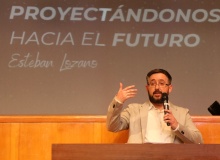
In an event in Madrid, evangelicals celebrated four decades of uninterrupted broadcasting of the evangelical programme on national television RTVE.
.jpg)
We must call on Europe to make a critical assessment of the results of its policy of renouncing the biblical worldview. We must offer hope for revitalisation.
.jpg)
Evangelicals globally are divided over Trump. But whatever our views, we can represent the gospel better by adopting a more servantlike politics.
.jpg)
The Ugandan Julia Sebutinde was the first African woman to sit on the United Nations judicial institution.
Cropped(1).jpg)
Ahead of February's elections in Germany, Frank Heinrich of the Evangelical Alliance explains to Evangelical Focus why a Christian vision introduces nuance into the overall tension and uncertainty.

The evangelical pastor had been sentenced to seven years in prison after participating in the mass demonstrations for democracy in July 2021.
.jpg)
The average age of marriage has risen to 28. “Society and churches prepare people for the wedding, but not for marriage”, says a pastor from Cluj-Napoca. Hypersexualisation and uncertainty about the future do not help either.
Hugo Pinto, writer and preacher in Portugal, reflects on the practicality of faith in all areas, including finance. “Money is like a knife in the kitchen”.
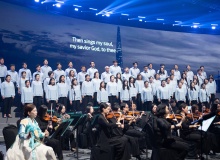
The Church in our region is steadily declining, and the age distribution of its members gives little hope of growth. What do we need to change without losing the gospel?

“This reveals a gap in the security of those who dedicate their lives to the spiritual and social service of their communities”, says the Evangelical Confederation of Colombia.
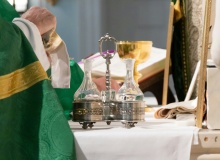
In dealing with Catholic apologetics, keep in mind that the evangelical faith is the faith that honors the lordship of Christ and the supreme authority of Scripture in all matters of faith and life.

A report of FEREDE denounces obstacles to the opening new places of worship, discrimination and the lack of a solution for retired pastors without pensions.
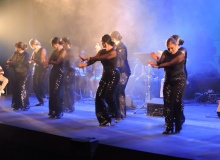
The evangelical churches in the southern Spanish city brought the Christian message of Christmas to the city in a joint event attended by the authorities.
.jpg)
“Sunday is associated with core values that are of particular importance both socially and religiously", says the Swiss federation of free evangelical churches.
A gathering of ministry and church leaders in Madrid, highlights the adaptation process that is taking place within the Spanish evangelical sphere.
.jpg)
The National Council of Evangelicals offers support to the victims. Most French evangelical organisations are part of the ‘Stop Abus’ service, launched in 2022, which has already helped 38 people.
.jpg)
The church needs the move of the Holy Spirit more than ever, to bring greater unity and collaboration of churches and mission organizations to fulfil the Great Commission.
.png)
The team behind the end-of-year gathering for thousands of Generation Z young adults longs to see “personal revivals for the love of Jesus”. Director Sarah Breuel points out “the huge difference between consecration and legalism”.
The granddaughter of a Protestant teacher, shot by Franco’s army when she was 8 months pregnant, received the award at the Democratic memory day event.
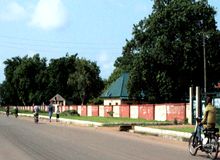
In just one week, Fulani herdsmen killed 48 Christians, including women and children, many were on their way to church services.
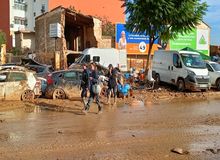
Christian psychologist, Abigail Castellanos, shares her experience serving in the distribution of aid among flood victims, and in coordinating the reception of volunteers.
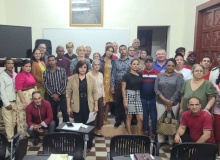
Christians say that “the Cuban state refuses to open spaces for the exercise of fundamental rights”, and denounce the application of heavy fines to religious leaders.
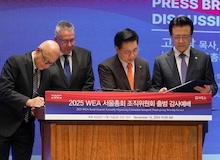
The World Evangelical Alliance signed a memorandum with Korean denominations that form the organising committee for the event to be held in Seoul in October 2025.
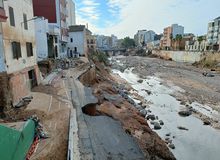
In addition to urgent aid for the flood victims in Valencia, other initiatives emerge, such as a project to furnish affected homes. “The Gospel provides a refuge”, says its coordinator.
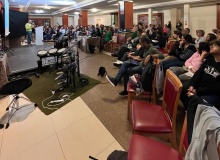
The 17th edition of the Italian GBU (IFES) National Study Conference gathered around 250 young people under the theme “Living and Engaging with Islam”.

Las opiniones vertidas por nuestros colaboradores se realizan a nivel personal, pudiendo coincidir o no con la postura de la dirección de Protestante Digital.